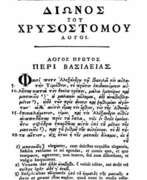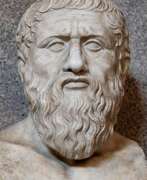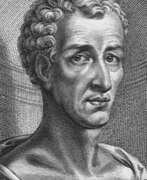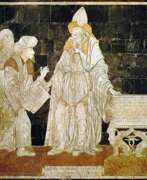Philosophers Ancient Greece
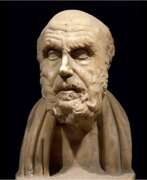

Aratus Solensis was an ancient Greek didactic poet.
It is known that he was a native of the ancient city of Soli in Cilicia, and studied under the famous philosophers of his time in Ephesus, Cos and Athens. Around 276 BC, Aratus was invited to the court of the Macedonian king Antigonus II Gonatus and expounded in verse his victory over the Gauls. Here he also wrote his most famous work in modern times, the hexameter poem Phenomena, which sets forth the astronomical knowledge of the time. He then spent some time at the court of Antiochus I Soter of Syria and returned to Macedonia.
The poet's second extant poem is Diosemeia ("On the Omens of the Weather"). These two poems by Aratus were very popular in both the Greek and Roman worlds. He was translated and quoted by Ovid and Cicerone, and a translation into Arabic was made in the 9th century.
In addition to poetry, Aratus practiced medicine, grammar, and philosophy.
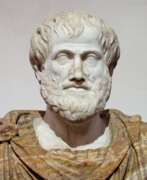

Aristotle (Greek: Ἀριστοτέλης) was an Ancient Greek philosopher and polymath, renowned for his profound impact on Western philosophy and science. Born in Stagira, Chalcidice, Aristotle's intellectual ventures spanned a multitude of subjects, including but not limited to physics, metaphysics, poetry, theater, music, logic, rhetoric, politics, government, ethics, biology, and zoology.
Educated in Plato's Academy in Athens, Aristotle distinguished himself as a scholar of vast knowledge and influence. His foundational works laid the groundwork for the development of modern science, while his teachings on logic and the syllogistic method continue to resonate in the realm of philosophy. As the tutor of Alexander the Great and the founder of the Lyceum in Athens, Aristotle's legacy extends beyond his prolific writings, with his teachings shaping medieval scholarship and influencing both Judeo-Islamic and Christian theologies.
Among Aristotle's notable works, his treatises such as "Nicomachean Ethics," "Politics," "Metaphysics," and "Poetics" have been studied for centuries. His concept of the "Golden Mean," advocating for a balanced and moderate approach to life, remains a cornerstone of ethical philosophy. His ideas on the "Prime Mover" and empirical evidence as a basis for understanding the world laid the foundation for scientific inquiry. Although only about a third of his original output has survived, Aristotle's contributions continue to be a subject of academic study and admiration.
For collectors and experts in art and antiques, the philosophical and scientific principles of Aristotle's works are not just historical artifacts but living ideas that continue to shape our understanding of the world and our place within it. His insights into the "good life" and the pursuit of happiness are as relevant today as they were in ancient Greece.
If you wish to stay informed about new product sales and auction events related to Aristotle, sign up for updates. This subscription is your gateway to the latest scholarly works, collections, and auctions connected to the great philosopher's legacy.
